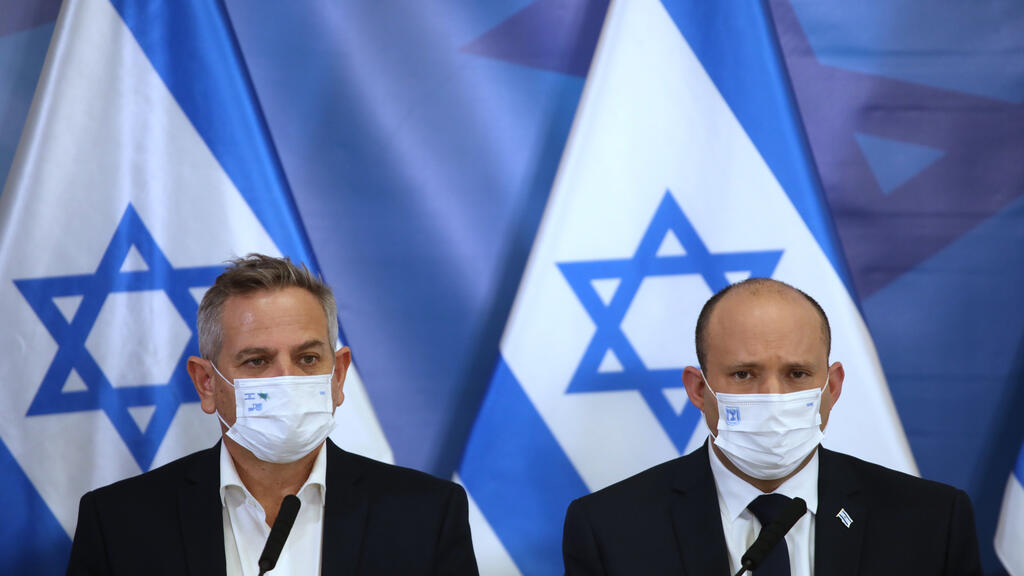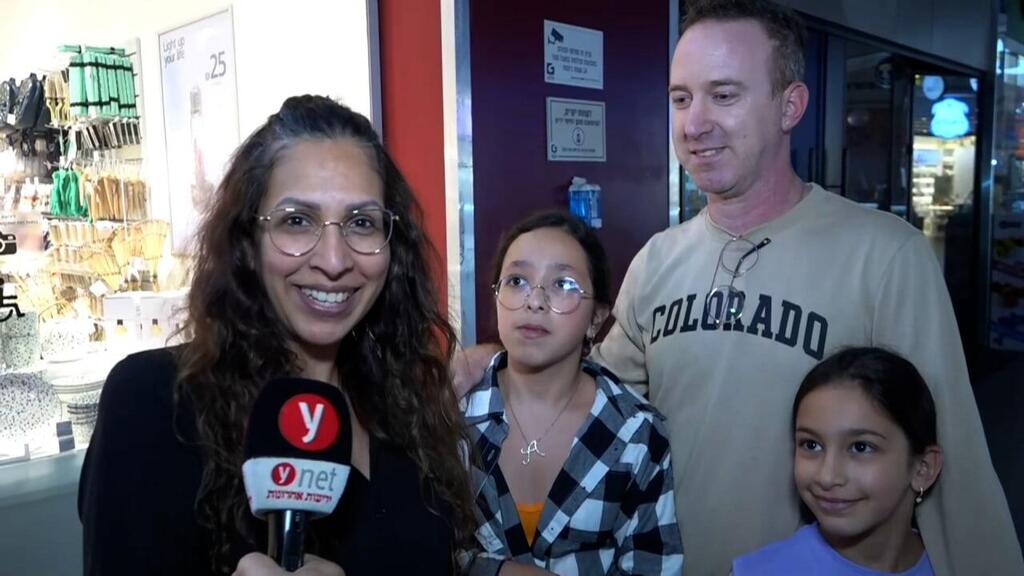Getting your Trinity Audio player ready...
Israel on Saturday evening has officially lifted the mask mandate in most confined spaces amid an apparent decline in the country's overall number of COVID-19 infections.
Prime Minister Naftali Bennett and Health Minister Nitzan Horowitz announced Wednesday starting 8pm Saturday, masks must only be worn in places with a high potential for infection.
The locations include hospitals, clinics, health funds, and organizations that provide emergency medical services, as well as nursing homes, geriatric institutions, and on international flights. In addition, a person who needs to enter isolation will still be required to wear a mask.
The Health Ministry also recommends that at-risk populations continue to wear a mask in confined spaces.
While masks are still required in places where the risk of coronavirus infection is considered highest, many see the scrapping of Israel’s longest-standing COVID restriction in many public areas as nothing less than a cause for celebration.
"My husband just ripped the mask off my face," said Susie from Petah Tikva, who went to see a movie with her family, all completely maskless. "There was a ceremony here to get rid of the masks. I personally think that the masks are still needed… if the place is crowded and such,” she added.
Merav, a speech therapist, explained that for her, the lifting of the mask mandate is a landmark moment that will serve to make her job far easier going forward.
“It was very difficult to work like this and we are glad that we can return to work… The threat of coronavirus still exists though, [so masks] might still be needed in places like buses and planes,” added Merav.
Despite the Israeli population’s revelry of the mandate’s abolishment, the fear of another outbreak is still in the air.
"I think we have reached a long-awaited moment that we have been waiting for a long time. It is time to return to a normal life, but not to be complacent and still not be overly confident,” said Shoham from southern Israel, who added she tends to spend most of her time with at-risk age groups, including her parents.
Elihau, another southern resident, echoed Shoham's apprehension: “I would like to feel safer and put on the mask, there is no doubt about it”.
“Maybe because everyone took off their masks there will be another infection wave. [Masks] should be removed in areas that are less dangerous, but not in areas where there is a risk of infection.”
3 View gallery


Prime Minister Naftali Bennett (R) and Health Minister Nitzan Horowitz
(Photo: Motti Milrod)
Israel has previously lifted the mask mandate in June of last year, when the Netanyahu government decided to scrap all COVID restrictions at the end of its term.
Less than two weeks later Bennett’s new government announced the return of many restrictions, including the mask mandate, mainly due to the increase in the number of daily COVID cases and the consequent beginning of the fourth infection wave.
Israel's last two remaining COVID restrictions include the compulsory coronavirus tests at Ben Gurion Airport and border crossings, and compulsory isolation for all who have been infected, including those who were vaccinated.



